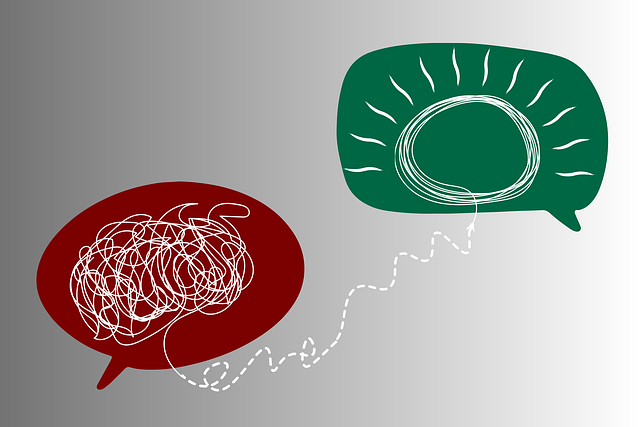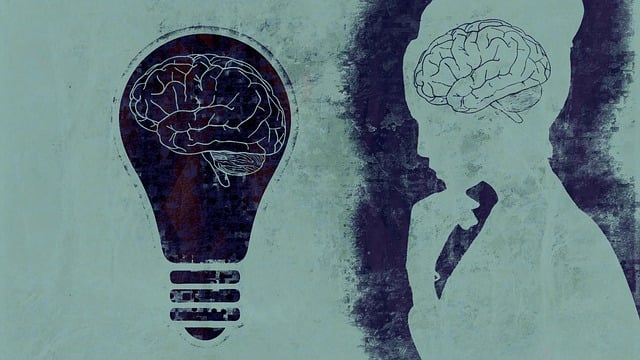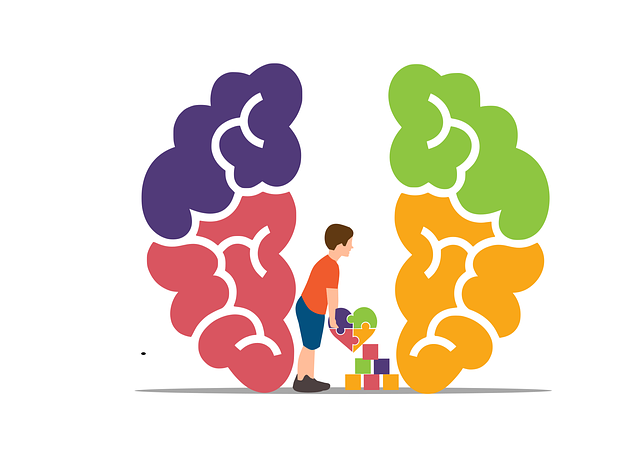Centennial Veterans Therapy is a specialized initiative offering crucial support to veterans dealing with trauma upon their return from combat. Through evidence-based practices, cultural sensitivity, and self-awareness exercises, they address PTSD, anxiety, and depression. By creating safe spaces, implementing online counseling, and collaborating with veteran organizations, Centennial Veterans Therapy breaks down barriers to mental health care, empowering veterans to overcome challenges and build resilience in a supportive community.
Trauma support services are vital for veterans grappling with the invisible wounds of war. This article explores the profound impact of trauma on military personnel, highlighting the critical role played by organizations like Centennial Veterans Therapy in providing much-needed care. We delve into challenges faced by veterans accessing services and effective therapy approaches tailored to their unique needs. Additionally, community involvement and available resources are discussed, emphasizing collaborative efforts for better veteran support.
- Understanding Trauma and Its Impact on Veterans
- The Role of Centennial Veterans Therapy in Support
- Accessing Services: Challenges and Solutions
- Effective Therapy Approaches for Veteran Care
- Community Involvement and Resources for Better Support
Understanding Trauma and Its Impact on Veterans

Trauma, a profound and lasting effect of distressing events, significantly impacts veterans upon their return from combat. The unique challenges faced by these individuals demand specialized support services tailored to address their specific needs. Veterans often struggle with conditions like post-traumatic stress disorder (PTSD), anxiety, and depression, which can hinder their transition back into civilian life.
Centennial Veterans Therapy, a pioneering initiative, recognizes the importance of comprehensive trauma support. Through its programs, veterans are equipped with essential coping skills to navigate the aftermath of their experiences. The therapy emphasizes cultural sensitivity in mental healthcare practice, ensuring that treatment aligns with each veteran’s unique background and perspective. Additionally, self-awareness exercises play a pivotal role in helping them process traumatic memories and develop resilience.
The Role of Centennial Veterans Therapy in Support

Centennial Veterans Therapy plays a pivotal role in providing specialized support for individuals facing trauma. With a deep understanding of the unique challenges faced by veterans, this therapy offers a safe and non-judgmental space for healing. The approach is holistic, addressing not just the symptoms but also the underlying causes, thereby fostering mental wellness and promoting resilience. By integrating evidence-based practices with personal care, Centennial Veterans Therapy helps individuals reclaim their lives, breaking down barriers to achieve mental health awareness and growth.
In today’s world, where mental health awareness has become a pressing issue, this therapy provides valuable tools for managing trauma, offering hope and recovery paths. The focus on individual experiences creates an environment conducive to self-reflection, encouraging clients to engage in mental wellness journaling exercises as a therapeutic practice. This guidance empowers them to track their progress, making the healing journey a personal and meaningful endeavor.
Accessing Services: Challenges and Solutions

Accessing trauma support services can be a challenging journey for many individuals, especially those who have experienced complex or long-term traumatic events. One significant hurdle is the often-stigmatized nature of seeking therapy, which can deter people from reaching out. This is particularly true for veterans, who may face unique barriers when transitioning from military to civilian life and seeking mental health care. Centennial Veterans Therapy has been instrumental in addressing these challenges by offering specialized services tailored to the unique needs of veterans. They provide a safe and non-judgmental space, fostering trust and encouraging open communication.
To overcome accessibility issues, these therapy centers often employ innovative strategies such as online counseling platforms and community outreach programs. Implementing Social Skills Training can help individuals feel more comfortable in therapeutic settings. Additionally, Risk Management Planning for Mental Health Professionals and comprehensive Risk Assessment processes ensure a secure environment, addressing concerns that might deter vulnerable clients. By combining accessible service delivery with tailored interventions, these initiatives aim to make trauma support services more inclusive and effective.
Effective Therapy Approaches for Veteran Care

Veterans often face unique challenges when seeking therapy due to their military experiences. Effective therapy approaches for veteran care at centers like Centennial Veterans Therapy should focus on evidence-based methods tailored to address post-traumatic stress disorder (PTSD), trauma, and other mental health concerns prevalent among veterans. One such approach is Cognitive Processing Therapy (CPT), which helps individuals process traumatic memories and reduce the intensity of associated emotions. Another powerful method is Eye Movement Desensitization and Reprocessing (EMDR), which uses bilateral stimulation to help veterans reprocess traumatic events, leading to significant improvements in symptoms.
Incorporating Cultural Sensitivity in Mental Healthcare Practice is vital for connecting with veteran clients. Understanding their cultural backgrounds and military-specific experiences can enhance the therapeutic alliance. Crisis Intervention Guidance, including effective communication strategies, plays a crucial role in providing immediate support during acute distress. Therapists should employ active listening, open-ended questions, and validation to create a safe space for veterans to share their stories, fostering effective communication that strengthens the healing process.
Community Involvement and Resources for Better Support

In fostering effective trauma support services, community involvement plays a pivotal role. Local communities often possess unique insights and resources that can significantly enhance therapeutic outcomes. For instance, Centennial Veterans Therapy has leveraged partnerships with local veteran organizations to create supportive networks tailored to the specific needs of veterans. These collaborations ensure that individuals receive holistic care by addressing not just psychological wounds but also social and economic challenges they may face.
Integrating community resources can substantially impact trauma recovery by promoting a sense of belonging and purpose. Through community engagement, individuals with traumatic experiences can access peer support groups, recreational activities, and employment opportunities, all of which contribute to improved mood management, self-esteem improvement, and burnout prevention. Such initiatives create a supportive environment that extends beyond traditional therapy settings, fostering resilience and long-term recovery for those affected by trauma.
Trauma support services for veterans are essential, and by understanding the impact of trauma alongside effective therapy approaches like those offered by Centennial Veterans Therapy, we can significantly enhance care. Overcoming challenges in accessing services through community involvement and resource allocation is crucial. By implementing these strategies, we foster a supportive environment that not only helps veterans navigate their traumas but also ensures they receive the care they deserve, leading to improved well-being and stronger communities.














